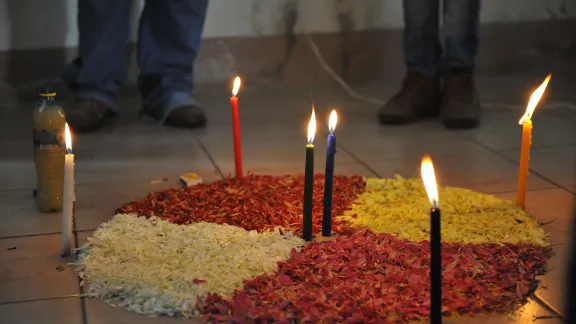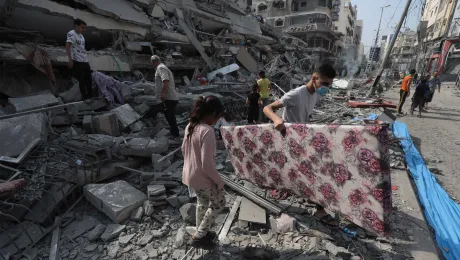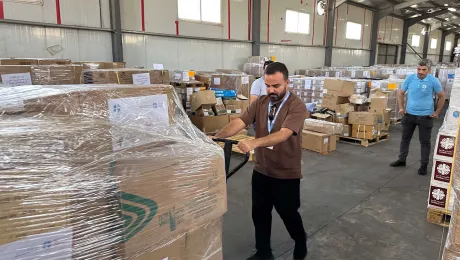
An indigenous ceremony in Guatemala, honouring the earth and creation. Respect for the environment runs deep in the indigenous communities of Guatemala, many of whom now see their traditional way of life threatened by infrastructure projects. Photo: LWF/ C. Kästner
Indigenous communities “most affected when defending their way of life”
(LWI) - The Lutheran World Federation Central America Program, together with the Guatemala Lutheran Church (Iglesia Luterana Guatemalteca, ILUGUA), an LWF member church, have spoken out against the killing of an indigenous human rights activist in San Mateo Ixtatan, in the state of Huehuetenango on January 17.
Sebastian Alonso, 72, was shot dead during a clash between protesters and police or armed security at a peaceful demonstration against the construction of a hydroelectric plant on their land. Local indigenous populations oppose the project which is being realized without their consent.
The statement calls for a full investigation of the killing as well as respect for the rights of indigenous population. “In this context, we believe that all people have the right to demonstrate and demand the protection of their resources in order to live with dignity,” the statement reads.
Human rights situation
The statement demands the cessation of “acts of violence against the communities that manifest themselves to enforce their rights” and the cessation of “projects that are far from working for the development of our communities, and which only violate their rights and bring with them greater injustice, exclusion and poverty.”
The killing is another example of the precarious human rights situation in Guatemala, Rev José Pilar Alvarez, the pastor president of ILUGUA, says. “In recent weeks there have been other attacks in which human rights defenders in Guatemala have been injured or assassinated.” He claims the country is becoming increasingly insecure since the government lifted security measures on more than 20 human rights organizations and individual activists, leaving them highly vulnerable.
He himself has received death threats for supporting indigenous communities and accompanying them in defending their land and natural resources and continues to be at great risk. “However, the most vulnerable are the peasant and indigenous communities,” he emphasizes. “They are most affected and violated when exercising their human right to peacefully manifest themselves, defending their way of life and the integrity of their territory.”
Land rights and natural resources
Land rights in indigenous communities are an ongoing challenge in Guatemala, a country marked by social insecurity. As part of a national development plan, several megaprojects in extractive industries or infrastructure are being realized on indigenous land and against the opposition of local communities. Opposition to and protests against the construction have been repressed and criminalized, often by military force, including killings of human rights activists.
In Huehuetenago, indigenous groups have been protesting the construction of the three hydroelectric power plants Pojom I, II and San Andres, which are constructed on their land without their consent and severely impacting on their natural resources. The government gave permission to the construction without the community consultation demanded by national and international law. Ever since, violent and non-violent protests have been recurring throughout the region.
LWF Central America together with the local member church advocates for human rights and climate justice. The LWF in Guatemala supports indigenous communities in land rights issues and adaptation to climate change, to achieve food security and manage local natural resources.


